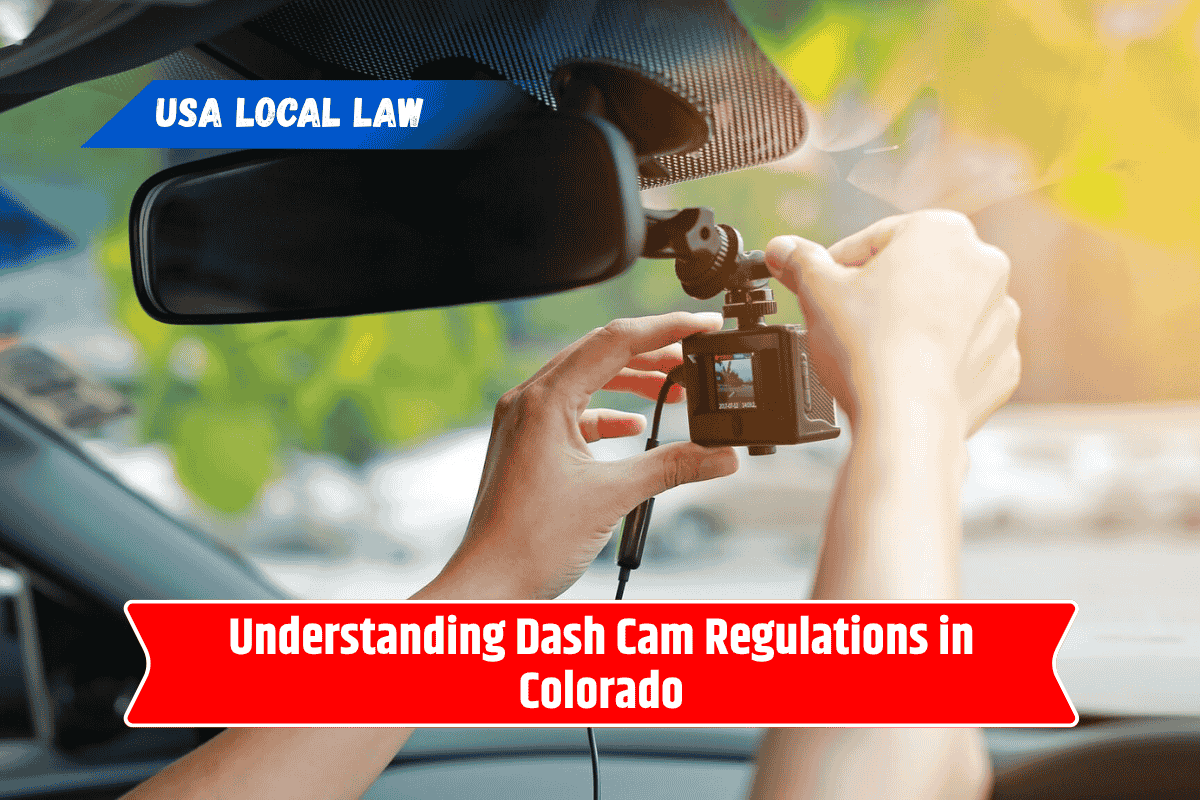Dash cams are becoming more popular among drivers in the United States. These small cameras record what happens on the road while you drive. Many people use them for safety, proof in accidents, or protection against false claims.
But before you install one in your car, it’s important to know the rules in your state. This guide will explain the dash cam laws in Colorado in simple words, so you understand what’s allowed and what’s not.
Are Dash Cams Legal in Colorado?
Yes, dash cams are legal in Colorado. You are allowed to use them in your personal or commercial vehicle. In fact, many drivers install dash cams to help in case of accidents or insurance disputes.
However, just because they are legal doesn’t mean you can place them anywhere or record anything you want. Colorado has a few rules that you must follow to avoid breaking the law.
Where Can You Place a Dash Cam?
In Colorado, you can install a dash cam on your windshield, but it must not block your view while driving.
According to Colorado law:
A dash cam must not block more than 4 square inches of space on the driver’s side of the windshield.
It must not block more than 7 square inches on the passenger’s side.
It should be placed in a way that does not distract the driver.
This rule is made to ensure that dash cams do not cause accidents by blocking vision or creating a distraction.
Is Audio Recording Legal in Colorado Dash Cams?
Colorado is a “one-party consent” state for audio recordings. This means:
You are allowed to record a conversation if you are part of it, even if the other person doesn’t know.
But you cannot record audio of other people’s private conversations if you are not part of it, unless they agree.
So, if your dash cam records sound, make sure you are part of the conversation being recorded, or get permission if others are involved.
Can You Use Dash Cam Footage in Court?
Yes, dash cam footage is admissible in court in Colorado. It can be used as evidence in:
Accident claims
Traffic tickets
Criminal cases
Insurance disputes
Just ensure the footage is clear, unedited, and lawfully recorded. It can be helpful to support your case and protect you legally.
Are There Rules for Commercial Vehicles?
Yes, commercial vehicles such as taxis, buses, or delivery vans may need to follow extra rules, especially if they are recording passengers. In such cases:
It’s best to put a sign or notice inside the vehicle saying that recording is in progress.
Make sure audio recording follows privacy laws.
Companies should also check with state and federal transport regulations for updated rules.
What Should You Avoid?
To stay safe and legal while using a dash cam in Colorado:
Don’t block your view with a large dash cam.
Don’t post or share videos of people online without their consent, especially if it involves private matters.
Don’t record audio of people who don’t know they are being recorded (unless you are part of the talk).
Don’t tamper with footage to mislead or lie—it could be used against you.
Dash cams are legal and useful tools in Colorado, but drivers must follow simple rules about where to place them and how to use them properly. As long as your dash cam doesn’t block your view or violate someone’s privacy, you’re on the right side of the law.
Whether you’re driving around the city or heading into the mountains, a dash cam can help protect you and your rights on the road. Just remember to use it wisely and respectfully.
